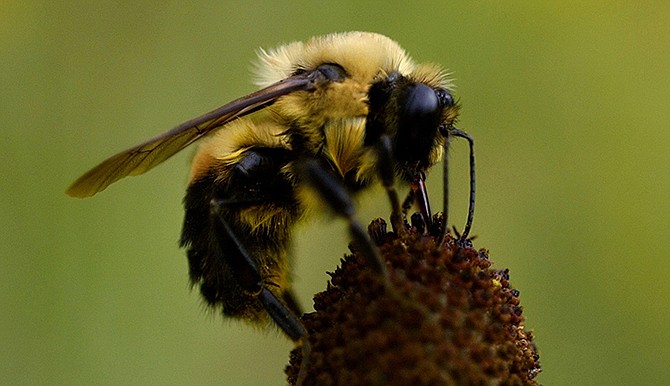Bumble bees are considered critical pollinators and their populations are rapidly declining, Missouri Department of Conservation officials said.
MDC officials said it's difficult to pinpoint the exact cause of declines, but scientists suspect habitat loss, pesticide use and climate change are contributors. To help in the study of the bees, MDC, along with the Xerces Society, Pheasants Forever and Quail Forever, and the University of Missouri, are encouraging residents to participate in community science by joining the Missouri Bumble Bee Atlas.
The Missouri Bumble Bee Atlas is a statewide project aimed at tracking and conserving Missouri's native bumble bees. Participants are asked to conduct bumble bee surveys and report back their findings. Survey methods are catch-and-release so no bees are harmed, and data collection can be completed on cell phones.
The Atlas team of researchers will be able to use information submitted to assess species distribution, bumble bee population shifts, habitat associations and more. This effort will help to better protect, restore and manage effective habitat that can support healthy bumble bee populations.
No experience is necessary to help, and all are welcome. Participants are only asked to complete two online training sessions.
The first session will cover topics of: value of bumble bees; bee biology and ecology, conservation and introduction to the Missouri Bumble Bee Atlas. The session will be 6-8 p.m. Tuesday.
The second session will cover topics of identifying the state's bumble bees; how to participate in the atlas; how to net and photograph bees; and how to submit findings. The session will be 6-8 p.m. May 13.
Registration is required to attend both workshops. Register at short.mdc.mo.gov/ZKm.
To learn more about the Missouri Bumble Bee Atlas, visit the website at mobumblebeeatlas.org. To read more about Missouri's native bumble bee populations, visit MDC's website at short.mdc.mo.gov/ZKm.

